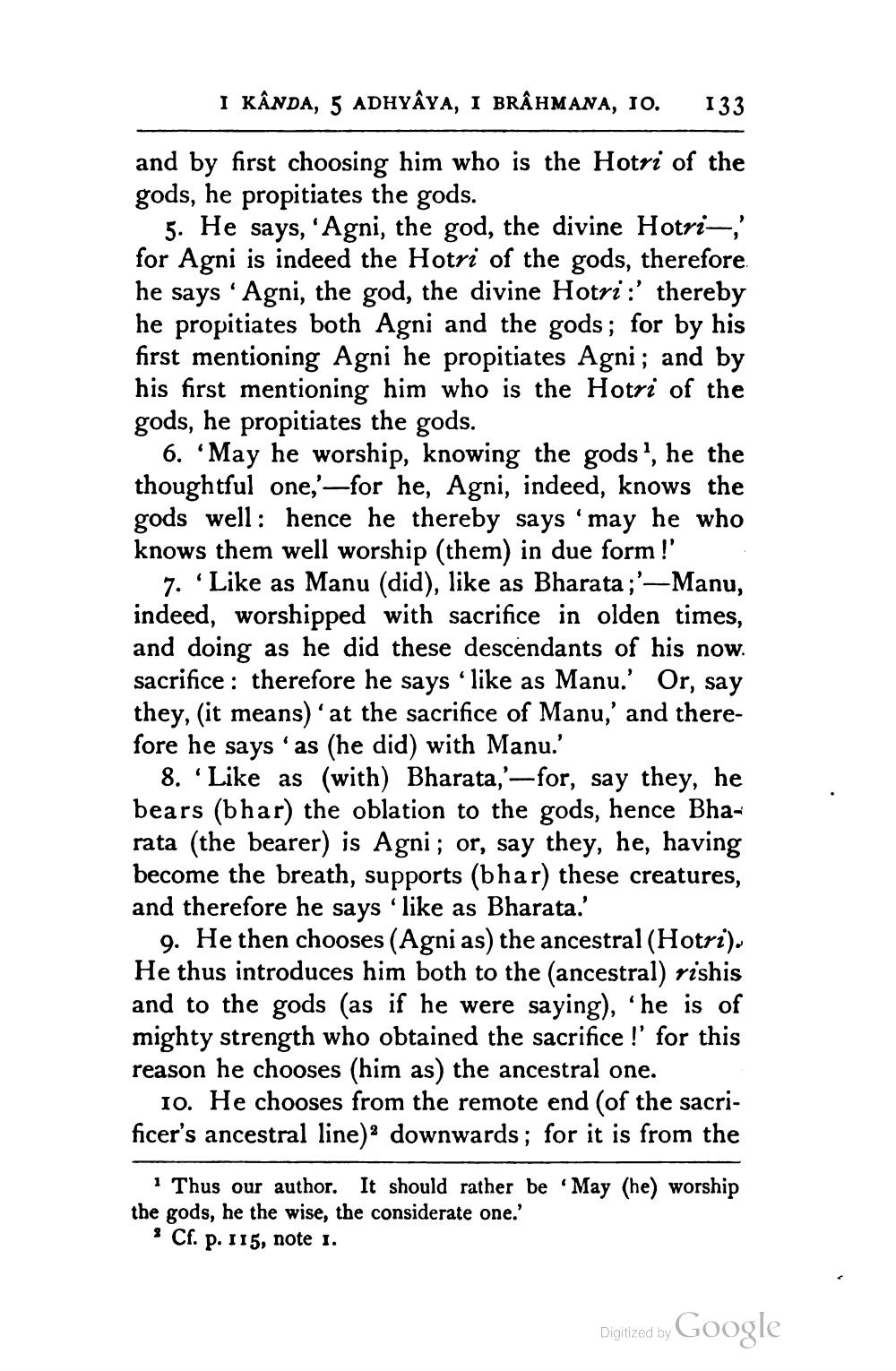________________
I KÂNDA, 5 ADHYÂYA, I BRÂHMANA, 10.
133
and by first choosing him who is the Hotri of the gods, he propitiates the gods.
5. He says, 'Agni, the god, the divine Hotri-,' for Agni is indeed the Hotri of the gods, therefore, he says 'Agni, the god, the divine Hotri :' thereby he propitiates both Agni and the gods; for by his first mentioning Agni he propitiates Agni; and by his first mentioning him who is the Hotri of the gods, he propitiates the gods.
6. 'May he worship, knowing the gods ", he the thoughtful one,'—for he, Agni, indeed, knows the gods well: hence he thereby says 'may he who knows them well worship (them) in due form!'
7. Like as Manu (did), like as Bharata;'—Manu, indeed, worshipped with sacrifice in olden times, and doing as he did these descendants of his now. sacrifice: therefore he says 'like as Manu.' Or, say they, (it means) at the sacrifice of Manu,' and therefore he says 'as (he did) with Manu.
8. ‘Like as (with) Bharata,'—for, say they, he bears (bhar) the oblation to the gods, hence Bharata (the bearer) is Agni; or, say they, he, having become the breath, supports (bhar) these creatures, and therefore he says 'like as Bharata.'
9. He then chooses (Agni as) the ancestral (Hotri). He thus introduces him both to the (ancestral) rishis and to the gods (as if he were saying), “he is of mighty strength who obtained the sacrifice !' for this reason he chooses (him as) the ancestral one.
10. He chooses from the remote end (of the sacrificer's ancestral line)downwards; for it is from the
1 Thus our author. It should rather be .May (he) worship the gods, he the wise, the considerate one.'
? Cf. p. 115, note i.
Digitized by Google




